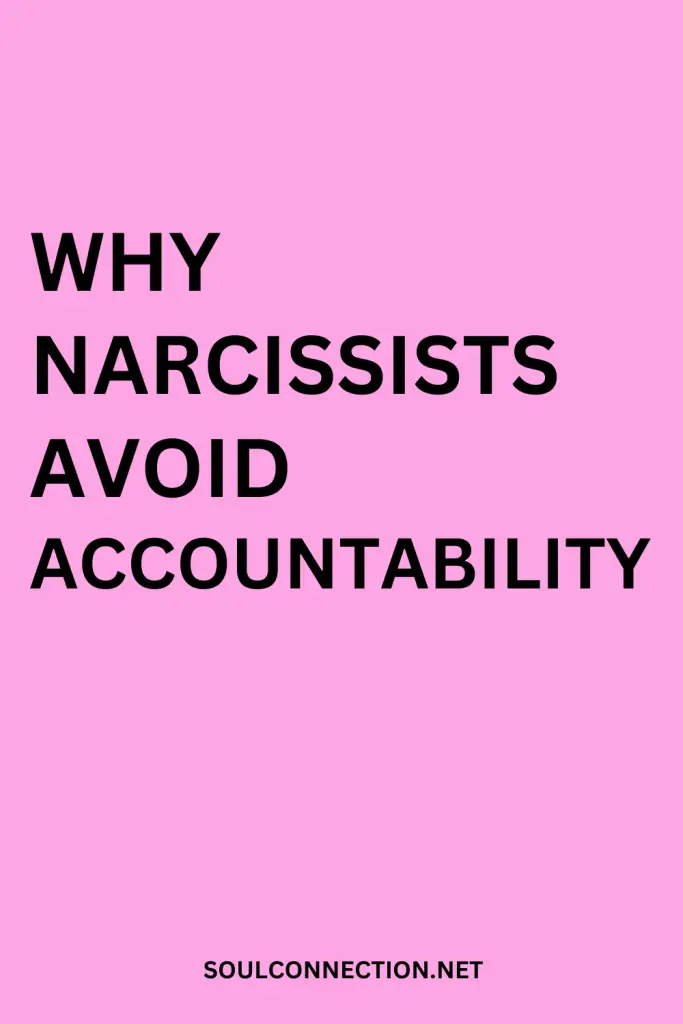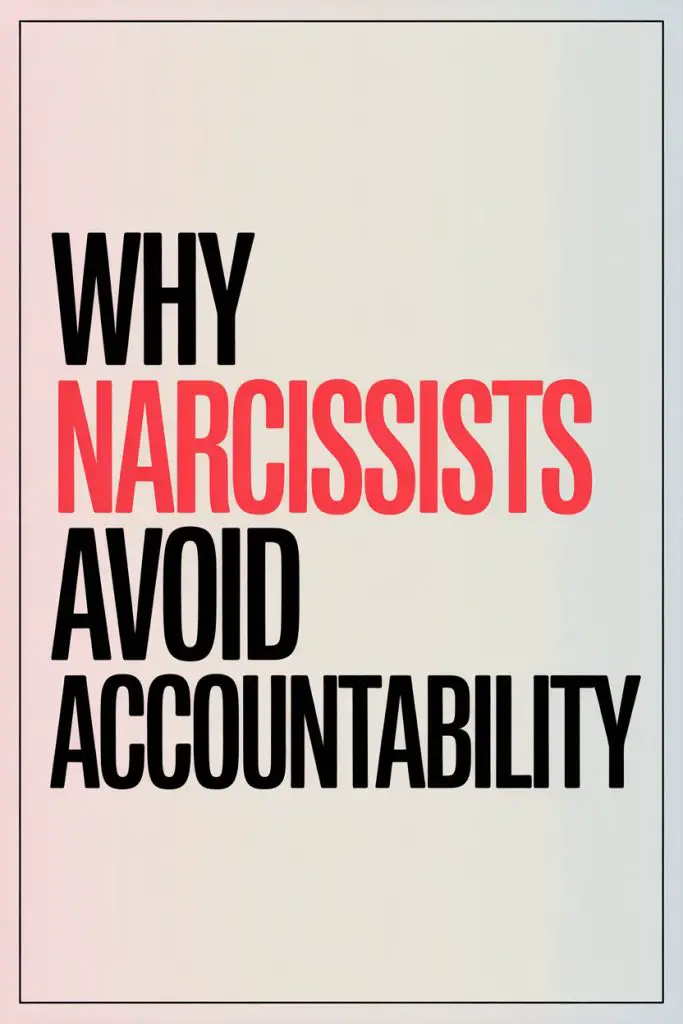Sharing your life with a narcissist can sometimes feel like starring in a one-person play—where they’re the writer, director, lead actor, and, oddly enough, the only one allowed to review the show.
When it comes to owning up to mistakes? The curtain drops faster than you can say “not my fault.”
If you’ve ever found yourself locked in a debate where reality itself seems up for negotiation, you already know: accountability is not a narcissist’s strong suit.
What gives? Why do narcissists sidestep responsibility as if it’s the world’s most contagious rash? Buckle up—there’s a method to the madness.
The Self-Image That Must Never Crack
Narcissists aren’t just invested in appearing perfect; their entire sense of self depends on it. Deep down, their ego is more fragile than a soggy cardboard box in a summer rainstorm.
They’ve built a psychological house of cards, balancing their self-worth on constant validation and admiration from others.
Admitting fault comes with a heavy price. If they acknowledge a mistake, there’s a risk that the persona they’ve worked so hard to project will start to crumble. That’s not just uncomfortable for them—it feels outright dangerous.
So, when blame comes knocking, narcissists will triple-lock the door, toss away the key, and claim they never even lived there.
Shifting the Blame is a Survival Tactic
Apologies from a narcissist are about as rare as a decent instant coffee. When something goes wrong, a narcissist’s first instinct is to blame someone else.
Anyone else. The dog, their boss, the postal service, you.
This blame-shifting isn’t just a bad habit—it’s an emotional survival mechanism. Accepting even a sliver of responsibility feels like admitting to a character flaw.
Better to point the finger elsewhere and keep that shining image untarnished.
Ever tried discussing a problem with a narcissist, only to leave the conversation wondering if you actually caused World War III? Classic case of blame-shifting. It’s not you. (Well, not unless you did actually start a war.)
Gaslighting: Redefining Reality, One Argument at a Time
Narcissists have a black belt in the art of gaslighting. This isn’t just denying facts, it’s a full-on assault on your perception of reality.
Caught them in a lie? Suddenly, you’re “too sensitive.” Called out a rude comment? “You’re imagining things.” They’ll twist your words, question your memory, and reframe situations to make you doubt your own sanity.
The beauty (for them) of gaslighting is that it not only helps them dodge blame, but over time, it can make you second-guess whether you should have brought up the issue at all. Voila! No accountability required.
Fear of Shame and Exposure
There’s nothing a narcissist dreads more than being exposed as less than perfect. Shame, for them, isn’t just uncomfortable—it’s existentially threatening.
If taking responsibility means risking public embarrassment, expect a performance worthy of the Oscars. Tears, outrage, dramatic exits—anything but a simple “my bad.” They’ll bend the narrative and play the victim to distract from the original issue.
At the end of the day, it’s all about dodging that deep, gut-level sense of shame. They’ll do almost anything to avoid feeling it—even if it means throwing you under the bus (and then reversing over you for good measure).
Accountability Feels Like Loss of Control
Being in control is non-negotiable for most narcissists. Admitting fault? That’s handing over the steering wheel.
If they own up to a mistake, suddenly you (or someone else) have the upper hand. You get to set the terms for what happens next. That’s a hard pill for a narcissist to swallow.
They’d rather convince you the car was never going anywhere in the first place.
This need for control explains why even small confrontations can turn nuclear. What looks like an overreaction might just be a desperate scramble to stay in charge of the story.
Empathy Deficit: It’s Not About How You Feel
Most of us can put ourselves in another’s shoes, at least long enough to realize when we’ve hurt someone. For narcissists, those shoes may as well be invisible.
A lack of empathy means they genuinely struggle to see why accountability matters to you. Your hurt, your frustration, your need for resolution—all that registers somewhere between “unfamiliar math problem” and “unread spam email.”
That’s not an excuse, but it does help explain why apologies and honest reflection are so thin on the ground.
Apologies Are Transactional, Not Transformative
Ever received an apology from a narcissist that somehow made everything worse? That’s because, for them, apologies aren’t about mending relationships—they’re just tools to get out of trouble.
You’ll notice the classic “I’m sorry you feel that way,” or the ever-popular “I’m sorry, but…” These aren’t real apologies. They’re attempts to smooth things over without genuinely accepting blame.
If you notice a pattern of “apologies” that leave you feeling more confused or angry, you’re not imagining things.
They’re Playing the Long Game
Narcissists are always strategizing—looking for the best way to keep themselves on top. Accountability threatens not only the present situation but their ongoing ability to keep the upper hand.
If they admit to wrongdoing now, you might expect accountability next time, too. That’s a slippery slope they’re keen to avoid. By never taking the blame, they set a precedent: don’t expect them to own up, ever.
It’s a masterclass in lowering your expectations.
Your Sanity Check: Strategies for Dealing With Narcissist Accountability Evasion
All this is…well, exhausting. But there are ways to protect your sanity and call for healthier patterns—without getting sucked into the drama.
Keep a paper trail. If you find that conversations get twisted, jot things down. Written communication doesn’t lie, and it can help you stay grounded in reality.
Don’t chase real apologies. Expecting a narcissist to suddenly become accountable is a bit like expecting your cat to bring you a cup of tea. Focus on what you need to heal, not what you hope they’ll do.
Set boundaries and stick to them. Make clear what you will and won’t tolerate. If they cross that line, enforce consequences without getting sucked into an argument about “who started it.”
Get support. Trusted friends, therapists, or online groups can help you regain perspective. You’re not crazy, and you’re definitely not alone.
Know when to walk away. Sometimes the healthiest accountability is to yourself. If the relationship is draining you dry, it may be time to step back.
When Accountability is Non-Negotiable
In some situations—like co-parenting, work, or legal matters—you might not be able to simply cut ties. Here, documentation and clear boundaries are your best tools.
Try to keep interactions factual and as neutral as possible. When in doubt, less is more.
Refuse to be drawn into emotional debates. Stick to the facts, state your needs, and repeat as needed. It’s not about winning them over; it’s about protecting your own well-being.
Moving Forward With Your Eyes Open
Every relationship has its quirks, but regular sidestepping of accountability can make even the best partnership feel like wading through wet cement.
Narcissists aren’t likely to change their spots—but you can choose how you respond.
Spotting these patterns doesn’t just help you survive the next argument; it can free you from the cycle of self-doubt and endless blame games. Know your worth, set your boundaries, and above all, don’t let anyone else rewrite your reality.
You deserve honesty. You deserve respect. And, at the very least, you deserve to have the last word in your own story.


